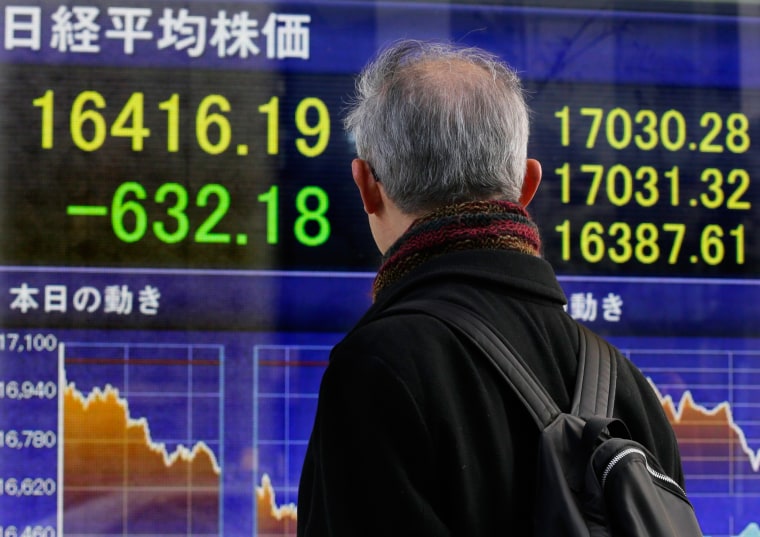Asian stocks tumbled Wednesday, with Japan's Nikkei entering the bear market, as global sentiment remained low on concerns over economic growth, China, and low oil prices.
"The frailty in the Chinese growth remain the core problem for investors and the spotlights are not moving away from it anytime soon," Naeem Aslam, chief market analyst at AvaTrade, said in a note Wednesday.
Overnight, the International Monetary Fund (IMF) cut its global growth forecast for 2016 to 3.4 percent, from 3.6 percent. The organization cited slower growth in emerging markets, especially in China, falling commodity prices, and rising interest rates in the U.S. as potential risks to global growth.
Australia's ASX 200 slipped 61.56 points, or 1.26 percent, to 4,841.50 points, its lowest finish since July 2013. The index is also down 19.07 percent from its 52-week high of 5,982.69, set April 2015, indicating the market is nearing bear territory. The financial, energy and materials sectors weighed heavily on the index, with those subindexes down between 1.94 and 3.86 percent.
In Japan, the Nikkei 225 closed 632.18 points, or 3.71 percent, lower at 16,416.19, off by 21.33 percent from its 52-week high of 20,868.03 set June 2015. This officially puts the index in bear market territory.

South Korea's Kospi was down 44.19 points, or 2.34 percent, at 1,845.45, off by about 15.08 percent from its 52-week high of 2,173.41, set April 2015.
In China, the Shanghai composite fell 31.22 points, or 1.04 percent, to 2,976.51, while the Shenzhen composite was down 19.44 points, or 1.02 percent, at 1,876.30. The CSI300 lost 48.74 points, or 1.51 percent, to close at 3,174.37.
Away from the mainland, Hong Kong's Hang Seng index dropped 3.45 percent to a three-and-a-half year low, amid concerns over its currency's peg to the dollar.
The Chinese economy grew by 6.9 percent in 2015, according to official data, down from 2014's 7.3 percent, and the slowest pace of economic expansion since 1990.
"The good news was that policymaking was sufficiently adroit to offset an unexpected adverse shock to exports and manufacturing from the energy price crash in 2014 for growth to hit the 'about 7 percent' target," Tim Condon, head of research for Asia at ING, said in a note Wednesday. "The bad news was that economic momentum slowed in December."